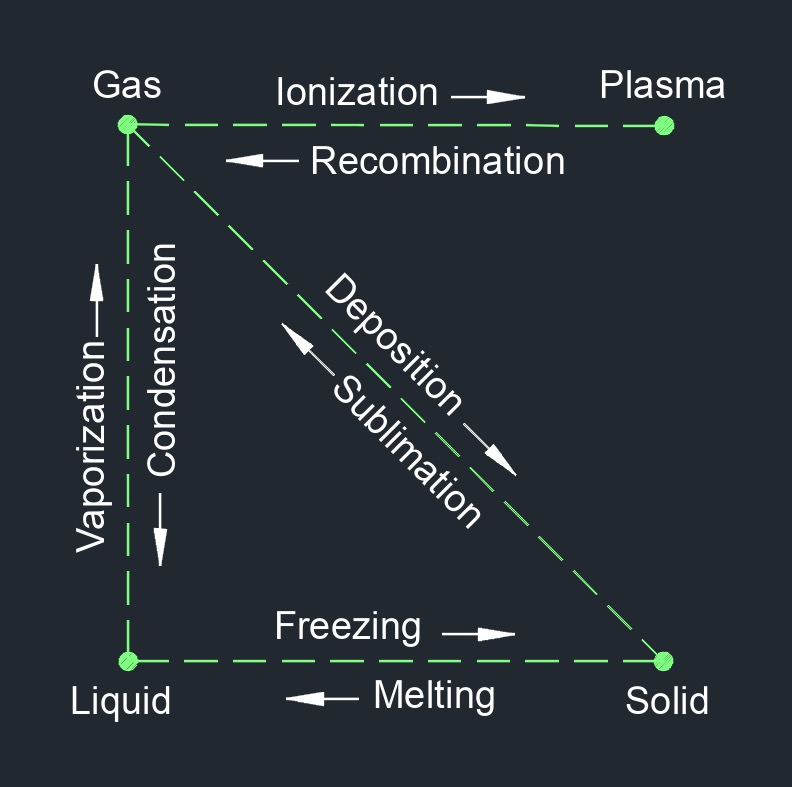Specific Enthalpy
Specific Enthalpy Formula |
||
|
\( h \;=\; \dfrac{ H }{ m }\) (Specific Enthalpy) \( H \;=\; h \cdot m \) \( m \;=\;\dfrac{ H}{h } \) |
||
| Symbol | English | Metric |
| \( h \) = Specific Enthalpy | \(Btu\;/\;lbm\) | \(kJ\;/\;kg\) |
| \( H \) = Enthalpy | \(Btu\;/\;lbm\) | \(kJ\;/\;kg\) |
| \( m \) = Total Mass of a System | \(lbm\) | \(kg\) |

Specific enthalpy, abbreviated as \(h\), is a thermodynamic property that represents the total energy contained within a unit mass of a substance, including both its internal energy and the energy associated with the pressure and volume of the substance. It's a measure of the heat content of a substance per unit mass. Specific enthalpy takes into account the internal energy, the work done on or by the substance, and the heat transferred to or from the substance during processes.
Enthalpy is particularly useful in analyzing processes at constant pressure, which are common in many engineering and industrial applications. The change in enthalpy of a substance during a process at constant pressure is often referred to as the heat transfer at constant pressure.
Specific enthalpy is especially important in applications involving fluids, gases, and heat transfer. It's used to analyze energy transfer and heat exchange in various processes, such as power generation, refrigeration, and heating systems. The concept of enthalpy simplifies energy calculations by combining the contributions of internal energy and pressure-volume work into a single property.
Enthalpy is often used to express the heat added to or removed from a substance during a process, especially when the process occurs at constant pressure. The enthalpy change of a substance during a chemical reaction is also crucial in understanding and predicting the heat of reaction.

